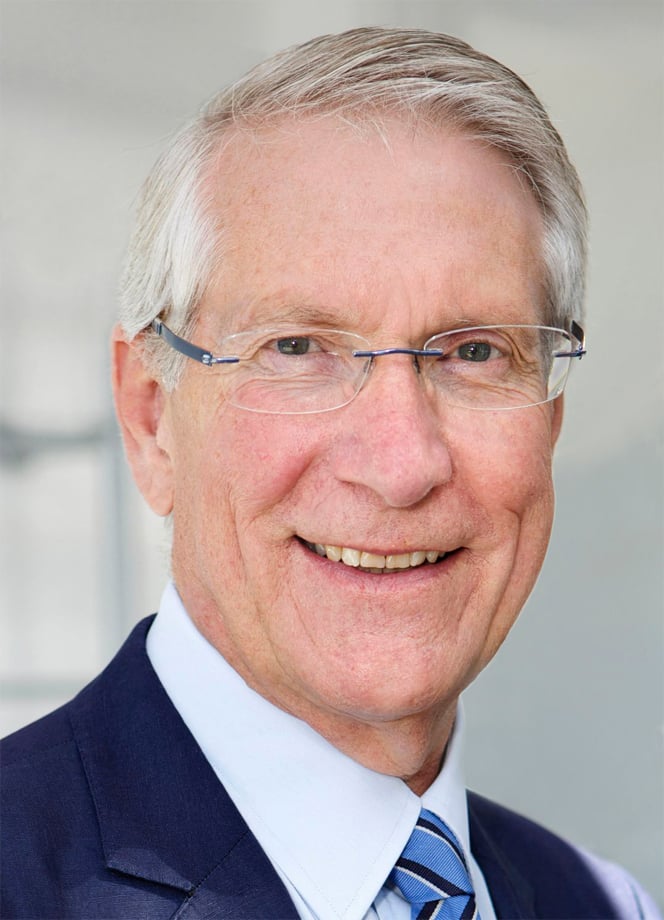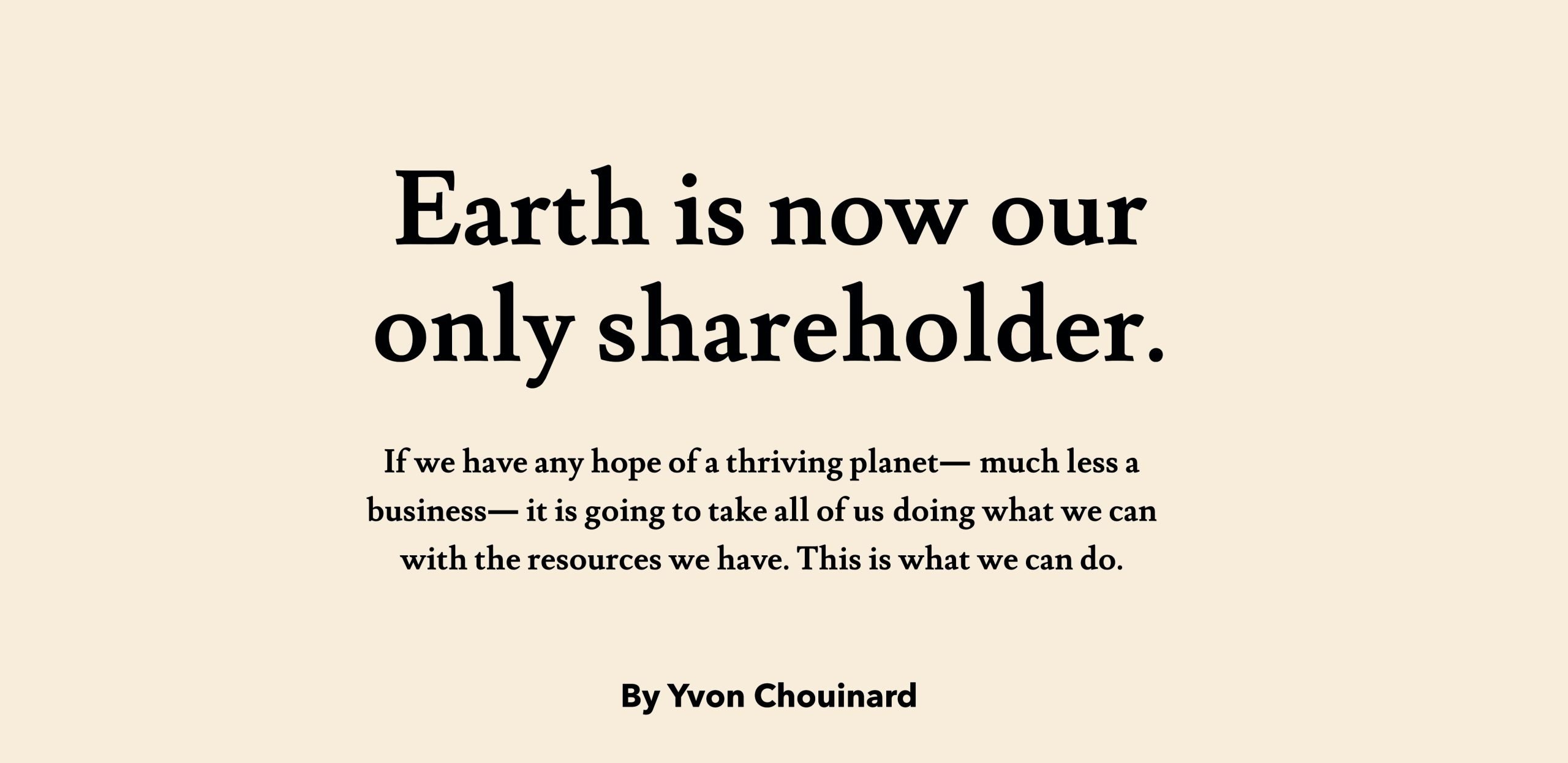Ask an artificial intelligence chatbot to tell you about Patagonia’s management style and, in a second or two, ChatGPT spits out a neat summary:
“The company has a strong culture of transparency, collaboration and teamwork, and encourages employee activism and engagement in environmental causes.”
There’s a bit more on accountability, and the company’s global sustainability rating. The real story, of course, is so much grittier, messier and more interesting.
Unapologetically political
Patagonia’s story feels less like one of those “we endeavour to…” LinkedIn posts, and more like chalk on your fingers as you grip a jagged rock face.
That’s because the company has spent half a century creating what its CEO Ryan Gellert calls a “body of work” – its unassailable reputation as a business out to save the planet.
From giving away 1% of sales each year to suing a President, from fanning out funding to grassroots activists to building a network that connects consumers and environmental projects, Patagonia has led a responsible business movement. The company has been “unapologetically political since the 1970s”.
Its leaders jump into public boxing rings on policy debates, its workers spend months volunteering at environmental groups, and its marketing campaigns go where others fear to tread.
In late-2022 Patagonia’s founder, Yvon Chouinard, gave away his family’s $3bn company to a trust and a non-profit organisation set up to protect his vision. “Earth is now our only shareholder,” he announced. It was a dramatic move, even for a “renegade capitalist” who doesn’t flinch when calling a government “evil”.
Many routes up a mountain
In his handover message, Chouinard spoke of a new form of capitalism and of “going purpose”. Of course most managers can't bottle Patagonia's sense of mission – forged over decades – and pop it open in meetings. They have to carve out their own way to become “net zero managers”. Some answer to shareholders, others manage complex lines of products and supply chains. Most can't break nearly as many rules as Chouinard does.
But Patagonia reminds us that leaders can, and do, make a difference.
With the right mindset, they can avoid seeing climate change as a giant best fought by those who'll meet at COP28 in Dubai. Patagonia also reminds managers of the greatest danger of all: doing nothing.
Crystalise the value of sustainable business
“Chouinard represents where responsible business comes from, even if it’s not the destination.” says Professor Gordon Clark. “We face bigger challenges than sourcing materials and distributing them. We’re facing [global warming of] two degrees.”
Clark has spent 25 years at the University of Oxford and was the director of the Smith School of Enterprise and the Environment. He’s taught at Harvard and specialises in how corporations are responding to climate change.
The way Clark sees it, Chouinard was at the right place, at the right time. Younger consumers were after products that caused less harm to the environment, while Chouinard – without the burden of past practices – was free to do fresh new things.
But, Clark says, the craftsman-turned-billionaire did realise, early on, the immense power of crystalising the consumer value around sustainable products.
Be open and honest about your journey

Clark has worked with many companies, some as big as PepsiCo, and says that any manager who wants to make a difference must start by understanding what their company does and exactly how it does it. That includes finding out “where the bodies are buried” and where – looking up and down the supply chain – the greatest challenges lie.
Patagonia began a thorough investigation of its supply chain in the early 1990s, according to a Harvard Business School study. This deep dive spanned mills, dye houses and farms. It focused on the damage being caused by cotton, wool, polyester and nylon production.
“Today, you can see on OpenStreetMap what factories are making their garments,” observes Stephanie Palmer CMgr, head of sustainability at Wienerberger UK & Ireland, part of the Wienerberger Group, which is the world’s largest brick maker. “Not many companies would do that. Maybe they don’t know, or they won’t say because it’s too far down the supply chain. Patagonia’s commitment to transparency is really powerful.”
The company’s website is packed with information about its use of recycled materials, its efforts to improve soil quality or farm organic cotton. Where there’s been controversy – over the use of plastic or working conditions – Patagonia didn’t hide.
“We try to be relentlessly transparent, both internally and externally, about the work we’re doing and our shortcomings,” is how CEO Ryan Gellert framed it in a recent New York Times interview.
Rob Cross, founder of The Purposeful Leader
Know your contribution and celebrate wins
Clark says it’s important to create a system that measures success. With the right metrics, leaders will be clear on what the bottom line is when writing sustainability reports. This, he adds, has turned out to be a huge challenge for many leaders.
Rob Cross, founder of The Purposeful Leader has some advice on this score. “To avoid feeling overwhelmed by the crisis facing humanity, leaders at all levels must be clear on what impact they wish to make,” he says. “We all have to realise that no one person can solve this. Instead, it’s up to every leader to be clear on their contribution and how they can leverage the scale of their teams and business to build a better future.”
Real change, Clark says, flows up and down an organisation. Senior executives or boards must approve capital commitments; winning them over means hitting short-term targets (measurable outcomes) and then framing the longer-term ones as opportunities for success.
Chouinard has strong views on companies plucking low-hanging fruit. He has accused major brands of “greenwashing” and backing down when the going got tough. However, Clark says it’s getting increasingly difficult for companies to greenwash, and that managers are increasingly required to build business cases that unlock longer-term investment.
Actions speak louder than mission statements

When it comes to mobilising an entire organisation, Clark says, managers need to look at younger generations of employees (who see the problem through a more urgent lens) and create the space for ideas and knowledge-sharing. Without the right forums, they’ll face resistance, ignorance or both. Managers may want to join networking groups or hire consultants.
Patagonia has long been seen as some kind of an Eden for workers. They surf at lunch and enrol their children in on-site schools. But those who work there don’t tend to join for the perks. They join to play their part. In 2016, a junior employee suggested Patagonia donate all of its Black Friday profits ($10m that year) to worthy causes. Days later the promise was announced on social media.
Patagonia’s projects range from protecting grizzly bears to preventing waste from mining operations. It produces hard-hitting documentaries and hosts annual conferences.
“They have a unique commitment to activism,” adds Palmer. “Patagonia has published books on how to support grassroots organisations. They go much wider than their own sphere of influence. And that’s admirable.”
Build teams and tell stories that spark action
Clark has observed some other elements that help managers take a deliberate and systematic approach to sustainability. These managers articulate clear goals and timelines (Patagonia’s purpose is “we’re in business to save our home planet”), build groups to implement plans (Patagonia has a team of 18 supporting activism and distributing grants) and tell anyone who’ll listen what they’ve achieved, year after year.
Language is important, as is threading your path into global efforts.
“The clock’s ticking. The time horizon over which leaders must make an appreciable difference to their business models is shrinking,” Clark says. “To achieve 2050 goals requires us to do things by 2025. We’re in a moment where the environmental movement is very successful. Now it’s time to turn that success into realisable objectives.”
Chouinard would surely agree with that.
Build your own body of work
- The CMI Professional Standard is an invaluable tool for anyone looking to develop the highest quality skills and capabilities. At its heart is the idea of being an ethical and inclusive leader.
- Becoming net positive: Check out this conversation between former Unilever CEO Paul Polman and CMI’s CEO Ann Francke
- Sustainable, ethical leadership will become ever more essential in the workplace. You can hone some of these skills of the future with this GenZ toolkit
The year Chouinard founded Patagonia, the world’s first mobile phone call was made. Chouinard started out living in his car, scrambling up mountains in California’s Yosemite Valley and eating banged-up tins of cat food. He became a billionaire and then gave it all away. His company’s body of work – incremental, created consistently over decades – shows what’s possible.
“When it’s your time to retire,” concludes Palmer. “Don’t look back and think ‘I could have done more’.”
Alex Eliseev is a journalist, writer and adventurer. He’s lived in four countries and travelled to dozens more. He’s written for magazines such as Wired and the New Statesman, prominent newspapers, radio and television.

